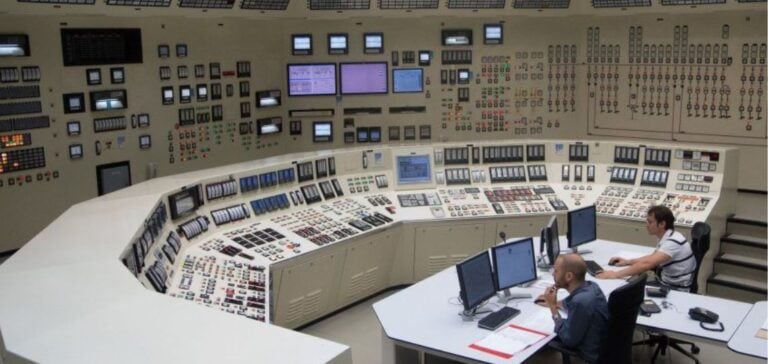EDF reports that the Flamanville EPR will not be connected to the electricity grid until late autumn 2024, three months later than planned.
The French nuclear safety authority (ASN) has given the go-ahead to start producing the first electrons, but the connection process, or “coupling”, still requires testing to reach an initial power level of 25%.
This latest setback comes on top of a twelve-year delay to the original schedule.
Divergence operations, which mark the start of controlled nuclear reactions, are scheduled for this week.
Régis Clément, Deputy Director of EDF’s Nuclear Generation Division, says this phase will take around ten hours.
He also stresses that the reactor will be ramped up in stages, without providing a precise date for reaching full capacity.
Technical problems and contingency management
The delays are attributed to various technical problems encountered at the Flamanville site.
On-site teams had to carry out additional operations during the summer due to unforeseen circumstances, thus delaying start-up.
These complications raise questions about risk management and cost control for this type of nuclear project.
The site has already been marked by construction anomalies, such as cracks in the concrete and welding defects, which have added considerably to the final bill.
Initially estimated at 3.3 billion euros, the cost of the Flamanville EPR has now risen to 13.2 billion euros.
The Cour des Comptes (French National Audit Office) had estimated it at 19 billion euros by 2020, taking into account additional financing costs.
These budget overruns reflect the complex challenges involved in implementing major nuclear projects in France.
Revision of nuclear production for 2024
Despite delays to the EPR, EDF has revised upwards its nuclear production forecast for 2024, now estimated at between 340 and 360 TWh.
This revision is due to the better performance of the other reactors in service, which are operating beyond initial expectations.
Optimized management of unit shutdowns and maintenance work, particularly concerning stress corrosion, contributed to this increase.
The summer weather, with no major events, also contributed to these results.
This revision does not take into account the potential contribution of the Flamanville EPR, whose contribution to the grid could represent an additional asset if the reactor is operational by the end of the year.
However, EDF remains cautious about the ramp-up of the EPR, stressing that each stage is conditional on successful testing and regulatory approvals.
Strategic context and industrial implications
The Flamanville EPR plays a key role in France’s nuclear strategy, particularly with the government’s commitment to revitalizing the industry.
President Emmanuel Macron has announced an order for six EPR2 reactors, with a further eight as options, to boost nuclear power generation.
Nevertheless, the difficulties encountered at Flamanville, both in terms of delays and cost overruns, are calling into question the planning and management of future similar projects.
The next stages of the project will be crucial for EDF and its partners.
The connection of the Flamanville EPR to the grid is expected to be an indicator of the Group’s ability to complete complex projects on time and on budget.
The success or failure of this project will influence future decisions, both for EDF and for the public authorities in charge of energy policy.





















